Sujatha is a Lead Educator at Grok Academy. Previously, she was a lecturer at the University of Sydney, designing and teaching units in the Master of Education (Digital Technologies) program. With a background in secondary computing and humanities teaching, she has worked with students and staff in K-12 and helped establish programs including after school code and robotics clubs. Sujatha’s interests include project-based learning and how technology can be meaningfully integrated into education.
Prior to teaching, Sujatha worked in the IT industry as a software developer and technical team lead. She is passionate about finding opportunities for every student to experience success in their educational journeys.
Appearances:
Day 1 @ 10:40
PRIMM: a pedagogy for programming (primary/secondary)
The curriculum requires the teaching of programming and other DT topics to students of all ages, but few teachers have been taught pedagogical approaches to teach the subject effectively. In this talk, we will present the PRIMM methodology, and explain why it is an effective approach to develop the skills and knowledge in the curriculum to your students.
Who Should Attend?
- Primary and Secondary teachers (3-12) and pre-service teachers looking to teach digital technologies and considering using Grok Academy’s resources.
- Teachers and technology leaders seeking advice on effective pedagogical approaches for teaching programming at their school.
Sujatha Gunja, Lead Educator,
Grok Academy

Sujatha is a Lead Educator at Grok Academy. Previously, she was a lecturer at the University of Sydney, designing and teaching units in the Master of Education (Digital Technologies) program. With a background in secondary computing and humanities teaching, she has worked with students and staff in ...
Bryn Jeffries, Tertiary Product Manager,
Grok Academy
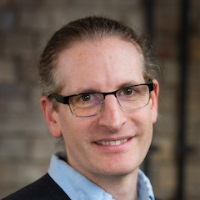
Bryn first got into teaching while studying for his Laser Physics PhD at the University of Oxford, working as a college tutor of Physics. He later studied a Master of Computer Science at the University of Sydney, and lectured Database Systems there for several years, during which he completed a...
Day 1 @ 11:00
Workshop - PRIMM: a pedagogy for programming (primary/secondary)
Bryn Jeffries, Tertiary Product Manager,
Grok Academy

Bryn first got into teaching while studying for his Laser Physics PhD at the University of Oxford, working as a college tutor of Physics. He later studied a Master of Computer Science at the University of Sydney, and lectured Database Systems there for several years, during which he completed a...
Sujatha Gunja, Lead Educator,
Grok Academy

Sujatha is a Lead Educator at Grok Academy. Previously, she was a lecturer at the University of Sydney, designing and teaching units in the Master of Education (Digital Technologies) program. With a background in secondary computing and humanities teaching, she has worked with students and staff in ...
Day 1 @ 12:20
Designing a scope and sequence for Digital Technologies (primary/secondary)
The Digital Technologies subject is designed on the fundamental principle that core concepts are introduced and developed progressively as students move through the curriculum. In this talk, we’ll explain how this principle of design lends itself well to a multi-year scope and sequence, and how this can be used to inform decisions about your teaching programs in schools.
Who Should Attend?
- Primary and Secondary teachers (F-10) looking to design learning programs that span multiple year levels in their schools.
- School Leaders, Curriculum Coordinators and ICT Integrators seeking to understand the breadth and depth of the Digital Technologies subject.
Anna Kinnane, Lead Educator,
Grok Academy
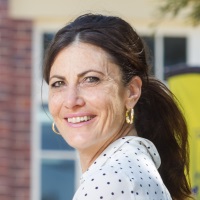
Anna is an educator with over 35 years’ experience working in diverse roles in both state and catholic education systems. As one of the original writers of the Australian Curriculum, Digital Technologies, Anna is passionate about supporting teachers to further develop their skills and understanding ...
Sujatha Gunja, Lead Educator,
Grok Academy

Sujatha is a Lead Educator at Grok Academy. Previously, she was a lecturer at the University of Sydney, designing and teaching units in the Master of Education (Digital Technologies) program. With a background in secondary computing and humanities teaching, she has worked with students and staff in ...
Bruce Fuda, Head of Education (Curriculum),
Grok Academy
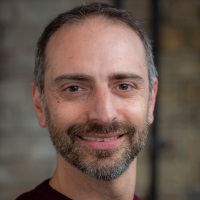
Bruce Fuda is Head of Education (Curriculum) at Grok Academy and the Project Lead on the Schools Cyber Security Challenges Project. Prior to joining Grok Academy, he has held jobs in Secondary Schools and the University sector, working as a teacher, Head of Department and Associate Principal, and...
Paula Christophersen, Lead Educator,
Grok Academy
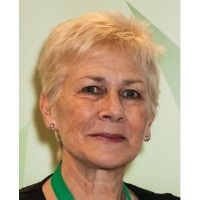
Paula is the former Digital Technologies Curriculum Manager, Victorian Curriculum and Assessment Authority, and is a co-writer of the Australian Digital Technologies Curriculum and the ICT general capability. She has presented at state, national, and international conferences in the areas of...
Day 1 @ 14:00
Teaching object-oriented programming (secondary)
The Australian Curriculum sets out an expectation that students learn the fundamental principles of object-oriented programming (OOP) in Years 9 and 10. In this talk, we’ll lay out the OOP principles students should be learning, and provide strategies and examples of how to teach these principles in the classroom.
Who should attend?
- Secondary Teachers (9-12) and pre-service teachers looking to teach digital technologies and senior secondary programming subjects.
Bruce Fuda, Head of Education (Curriculum),
Grok Academy

Bruce Fuda is Head of Education (Curriculum) at Grok Academy and the Project Lead on the Schools Cyber Security Challenges Project. Prior to joining Grok Academy, he has held jobs in Secondary Schools and the University sector, working as a teacher, Head of Department and Associate Principal, and...
Sujatha Gunja, Lead Educator,
Grok Academy

Sujatha is a Lead Educator at Grok Academy. Previously, she was a lecturer at the University of Sydney, designing and teaching units in the Master of Education (Digital Technologies) program. With a background in secondary computing and humanities teaching, she has worked with students and staff in ...
Day 1 @ 14:20
Workshop - Teaching object-oriented programming (secondary)
Sujatha Gunja, Lead Educator,
Grok Academy

Sujatha is a Lead Educator at Grok Academy. Previously, she was a lecturer at the University of Sydney, designing and teaching units in the Master of Education (Digital Technologies) program. With a background in secondary computing and humanities teaching, she has worked with students and staff in ...
Bruce Fuda, Head of Education (Curriculum),
Grok Academy

Bruce Fuda is Head of Education (Curriculum) at Grok Academy and the Project Lead on the Schools Cyber Security Challenges Project. Prior to joining Grok Academy, he has held jobs in Secondary Schools and the University sector, working as a teacher, Head of Department and Associate Principal, and...
Day 1 @ 15:20
Cyber security in the Australian Curriculum (primary/secondary)
Helping students understand the risks of personal information security and data sharing is vitally important in the digital age. In this workshop, we will look at changes to the Digital Technologies subject and Digital Literacy capability (formerly, the ICT Capability) in the Australian Curriculum.
Who Should Attend?
- Primary and Secondary teachers (5-12) and pre-service teachers looking to teach digital technologies and considering the using the Grok Academy’s resources.
- Teachers and technology leaders seeking resources to support the implementation of the curriculum.
Penny Player, Educator,
Grok Academy
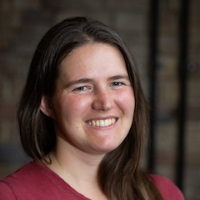
Penny Player is an Intermediate Educator at Grok Academy. She previously coordinated Zero Robotics (Australia) at the University of Sydney, an international competition giving high school students the chance to program robotics satellites on board the International Space Station. Penny has a...
Sujatha Gunja, Lead Educator,
Grok Academy

Sujatha is a Lead Educator at Grok Academy. Previously, she was a lecturer at the University of Sydney, designing and teaching units in the Master of Education (Digital Technologies) program. With a background in secondary computing and humanities teaching, she has worked with students and staff in ...
Day 1 @ 15:40
Workshop - Cyber security in the Australian Curriculum (primary/secondary)
Penny Player, Educator,
Grok Academy

Penny Player is an Intermediate Educator at Grok Academy. She previously coordinated Zero Robotics (Australia) at the University of Sydney, an international competition giving high school students the chance to program robotics satellites on board the International Space Station. Penny has a...
Sujatha Gunja, Lead Educator,
Grok Academy

Sujatha is a Lead Educator at Grok Academy. Previously, she was a lecturer at the University of Sydney, designing and teaching units in the Master of Education (Digital Technologies) program. With a background in secondary computing and humanities teaching, she has worked with students and staff in ...
Day 1 @ 16:00
STEM: integration strategies for success (primary/secondary)
Many schools choose to deliver Digital Technologies through a combined STEM program, which brings with it real opportunities for rich contextualisation of learning across subjects. It also brings with it significant challenges – how do you ensure every learning area is treated as a first-class citizen in your learning program? We’ll discuss this issue, and present strategies you can use to ensure your STEM program stays on track to deliver on its promise to students.
Who Should Attend?
- Primary and Secondary teachers (3-10) and pre-service teachers looking to understand how to teach digital technologies in an integrated STEM programme.
Sujatha Gunja, Lead Educator,
Grok Academy

Sujatha is a Lead Educator at Grok Academy. Previously, she was a lecturer at the University of Sydney, designing and teaching units in the Master of Education (Digital Technologies) program. With a background in secondary computing and humanities teaching, she has worked with students and staff in ...
Anna Kinnane, Lead Educator,
Grok Academy

Anna is an educator with over 35 years’ experience working in diverse roles in both state and catholic education systems. As one of the original writers of the Australian Curriculum, Digital Technologies, Anna is passionate about supporting teachers to further develop their skills and understanding ...
Day 2 @ 10:20
PRIMM: a pedagogy for programming (primary/secondary)
The curriculum requires the teaching of programming and other DT topics to students of all ages, but few teachers have been taught pedagogical approaches to teach the subject effectively. In this talk, we will present the PRIMM methodology, and explain why it is an effective approach to develop the skills and knowledge in the curriculum to your students.
Who Should Attend?
- Primary and Secondary teachers (3-12) and pre-service teachers looking to teach digital technologies and considering using Grok Academy’s resources.
- Teachers and technology leaders seeking advice on effective pedagogical approaches for teaching programming at their school.
Bryn Jeffries, Tertiary Product Manager,
Grok Academy

Bryn first got into teaching while studying for his Laser Physics PhD at the University of Oxford, working as a college tutor of Physics. He later studied a Master of Computer Science at the University of Sydney, and lectured Database Systems there for several years, during which he completed a...
Sujatha Gunja, Lead Educator,
Grok Academy

Sujatha is a Lead Educator at Grok Academy. Previously, she was a lecturer at the University of Sydney, designing and teaching units in the Master of Education (Digital Technologies) program. With a background in secondary computing and humanities teaching, she has worked with students and staff in ...
Day 2 @ 10:40
Workshop - PRIMM: a pedagogy for programming (primary/secondary)
Sujatha Gunja, Lead Educator,
Grok Academy

Sujatha is a Lead Educator at Grok Academy. Previously, she was a lecturer at the University of Sydney, designing and teaching units in the Master of Education (Digital Technologies) program. With a background in secondary computing and humanities teaching, she has worked with students and staff in ...
Bryn Jeffries, Tertiary Product Manager,
Grok Academy

Bryn first got into teaching while studying for his Laser Physics PhD at the University of Oxford, working as a college tutor of Physics. He later studied a Master of Computer Science at the University of Sydney, and lectured Database Systems there for several years, during which he completed a...
Day 2 @ 11:40
STEM: integration strategies for success (primary/secondary)
Many schools choose to deliver Digital Technologies through a combined STEM program, which brings with it real opportunities for rich contextualisation of learning across subjects. It also brings with it significant challenges – how do you ensure every learning area is treated as a first-class citizen in your learning program? We’ll discuss this issue, and present strategies you can use to ensure your STEM program stays on track to deliver on its promise to students.
Who Should Attend?
- Primary and Secondary teachers (3-10) and pre-service teachers looking to understand how to teach digital technologies in an integrated STEM programme.
Anna Kinnane, Lead Educator,
Grok Academy

Anna is an educator with over 35 years’ experience working in diverse roles in both state and catholic education systems. As one of the original writers of the Australian Curriculum, Digital Technologies, Anna is passionate about supporting teachers to further develop their skills and understanding ...
Sujatha Gunja, Lead Educator,
Grok Academy

Sujatha is a Lead Educator at Grok Academy. Previously, she was a lecturer at the University of Sydney, designing and teaching units in the Master of Education (Digital Technologies) program. With a background in secondary computing and humanities teaching, she has worked with students and staff in ...
Day 2 @ 12:20
Cyber security in the Australian Curriculum (primary/secondary)
Helping students understand the risks of personal information security and data sharing is vitally important in the digital age. In this workshop, we will look at changes to the Digital Technologies subject and Digital Literacy capability (formerly, the ICT Capability) in the Australian Curriculum.
Who Should Attend?
- Primary and Secondary teachers (5-12) and pre-service teachers looking to teach digital technologies and considering the using the Grok Academy’s resources.
- Teachers and technology leaders seeking resources to support the implementation of the curriculum.
Penny Player, Educator,
Grok Academy

Penny Player is an Intermediate Educator at Grok Academy. She previously coordinated Zero Robotics (Australia) at the University of Sydney, an international competition giving high school students the chance to program robotics satellites on board the International Space Station. Penny has a...
Sujatha Gunja, Lead Educator,
Grok Academy

Sujatha is a Lead Educator at Grok Academy. Previously, she was a lecturer at the University of Sydney, designing and teaching units in the Master of Education (Digital Technologies) program. With a background in secondary computing and humanities teaching, she has worked with students and staff in ...
Day 2 @ 12:40
Workshop - Cyber security in the Australian Curriculum (primary/secondary)
Sujatha Gunja, Lead Educator,
Grok Academy

Sujatha is a Lead Educator at Grok Academy. Previously, she was a lecturer at the University of Sydney, designing and teaching units in the Master of Education (Digital Technologies) program. With a background in secondary computing and humanities teaching, she has worked with students and staff in ...
Penny Player, Educator,
Grok Academy

Penny Player is an Intermediate Educator at Grok Academy. She previously coordinated Zero Robotics (Australia) at the University of Sydney, an international competition giving high school students the chance to program robotics satellites on board the International Space Station. Penny has a...
Day 2 @ 13:20
Teaching object-oriented programming (secondary)
The Australian Curriculum sets out an expectation that students learn the fundamental principles of object-oriented programming (OOP) in Years 9 and 10. In this talk, we’ll lay out the OOP principles students should be learning, and provide strategies and examples of how to teach these principles in the classroom.
Who should attend?
- Secondary Teachers (9-12) and pre-service teachers looking to teach digital technologies and senior secondary programming subjects.
Bruce Fuda, Head of Education (Curriculum),
Grok Academy

Bruce Fuda is Head of Education (Curriculum) at Grok Academy and the Project Lead on the Schools Cyber Security Challenges Project. Prior to joining Grok Academy, he has held jobs in Secondary Schools and the University sector, working as a teacher, Head of Department and Associate Principal, and...
Sujatha Gunja, Lead Educator,
Grok Academy

Sujatha is a Lead Educator at Grok Academy. Previously, she was a lecturer at the University of Sydney, designing and teaching units in the Master of Education (Digital Technologies) program. With a background in secondary computing and humanities teaching, she has worked with students and staff in ...
Day 2 @ 13:40
Workshop - Teaching object-oriented programming (secondary)
Bruce Fuda, Head of Education (Curriculum),
Grok Academy

Bruce Fuda is Head of Education (Curriculum) at Grok Academy and the Project Lead on the Schools Cyber Security Challenges Project. Prior to joining Grok Academy, he has held jobs in Secondary Schools and the University sector, working as a teacher, Head of Department and Associate Principal, and...
Sujatha Gunja, Lead Educator,
Grok Academy

Sujatha is a Lead Educator at Grok Academy. Previously, she was a lecturer at the University of Sydney, designing and teaching units in the Master of Education (Digital Technologies) program. With a background in secondary computing and humanities teaching, she has worked with students and staff in ...
Day 2 @ 14:40
Designing a scope and sequence for Digital Technologies (primary/secondary)
The Digital Technologies subject is designed on the fundamental principle that core concepts are introduced and developed progressively as students move through the curriculum. In this talk, we’ll explain how this principle of design lends itself well to a multi-year scope and sequence, and how this can be used to inform decisions about your teaching programs in schools.
Who Should Attend?
- Primary and Secondary teachers (F-10) looking to design learning programs that span multiple year levels in their schools.
- School Leaders, Curriculum Coordinators and ICT Integrators seeking to understand the breadth and depth of the Digital Technologies subject.
Bruce Fuda, Head of Education (Curriculum),
Grok Academy

Bruce Fuda is Head of Education (Curriculum) at Grok Academy and the Project Lead on the Schools Cyber Security Challenges Project. Prior to joining Grok Academy, he has held jobs in Secondary Schools and the University sector, working as a teacher, Head of Department and Associate Principal, and...
Anna Kinnane, Lead Educator,
Grok Academy

Anna is an educator with over 35 years’ experience working in diverse roles in both state and catholic education systems. As one of the original writers of the Australian Curriculum, Digital Technologies, Anna is passionate about supporting teachers to further develop their skills and understanding ...
Sujatha Gunja, Lead Educator,
Grok Academy

Sujatha is a Lead Educator at Grok Academy. Previously, she was a lecturer at the University of Sydney, designing and teaching units in the Master of Education (Digital Technologies) program. With a background in secondary computing and humanities teaching, she has worked with students and staff in ...
Paula Christophersen, Lead Educator,
Grok Academy

Paula is the former Digital Technologies Curriculum Manager, Victorian Curriculum and Assessment Authority, and is a co-writer of the Australian Digital Technologies Curriculum and the ICT general capability. She has presented at state, national, and international conferences in the areas of...
last published: 11/Aug/22 02:45 GMT







